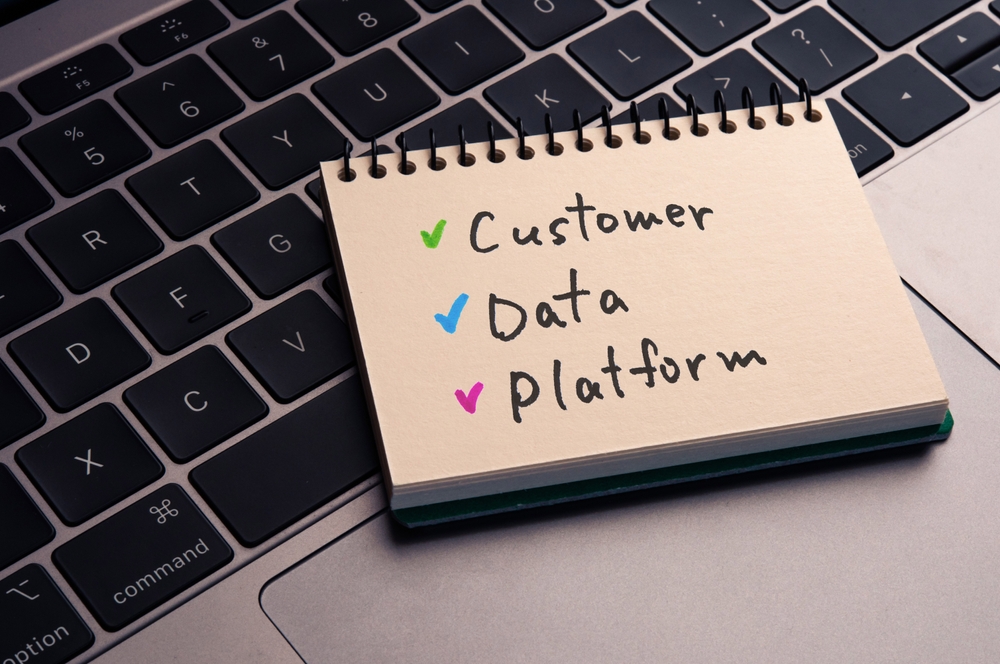The customer data landscape is undergoing a seismic shift. Consumers are increasingly wary of how their data is collected and used, demanding greater transparency and control. In response, a wave of privacy regulations like GDPR and CCPA have emerged, reshaping how businesses gather and leverage customer information.
This changing landscape presents both challenges and opportunities. While navigating the complexities of data privacy can be daunting, it also opens the door for building stronger customer relationships based on trust and respect.
The Erosion of Third-Party Data and the Rise of First-Party Data

Traditionally, marketers relied heavily on third-party data – information purchased from data brokers about demographics, interests, and online behavior. This data, while valuable, often lacked accuracy and lacked transparency in its collection. With privacy regulations prioritizing individual control, third-party data is becoming increasingly unreliable and limited.
This has led to a surge in the importance of first-party data – information collected directly from customers through website interactions, app usage, loyalty programs, email sign-ups, and surveys. First-party data is not only more accurate and reliable but also fosters trust by putting customers in control of how their information is used.
Privacy Regulations: A Catalyst for Change

Data privacy regulations like GDPR (General Data Protection Regulation) and CCPA (California Consumer Privacy Act) have fundamentally changed the way businesses interact with customer data. These regulations empower individuals with a range of rights, including:
- The right to access their data: Customers can request a copy of all the data a company holds on them.
- The right to rectification: Customers can request inaccurate or incomplete data to be corrected.
- The right to erasure (the right to be forgotten): Customers can request their data to be deleted.
- The right to restrict processing: Customers can limit how their data is used.
- The right to data portability: Customers can request their data to be transferred to another company.
While these regulations may seem restrictive, they provide a framework for building trust with customers. By prioritizing transparency and control, businesses can turn privacy regulations into a competitive advantage.
How CDPs Help Businesses Navigate the New Data Landscape

CDPs are a powerful tool for navigating the evolving data landscape. Here’s how they can help businesses adapt and thrive:
- Unified Customer Profiles: CDPs centralize customer data from various sources – website visits, email interactions, purchase history, social media engagement – into a unified profile. This single view allows businesses to understand their customers holistically, enabling more effective marketing campaigns and personalized experiences.
- Focus on First-Party Data: CDPs empower businesses to collect and leverage valuable first-party data. By providing clear value propositions for data collection (e.g., exclusive offers, personalized recommendations), CDPs encourage customers to share their information willingly.
- Privacy Compliance: Leading CDPs are built with data privacy in mind. They have features to manage consent preferences, track data usage, and facilitate data deletion requests, ensuring compliance with evolving regulations.
- Customer Segmentation and Targeting: By leveraging rich customer profiles, CDPs enable businesses to segment audiences based on demographics, behavior, and preferences. This allows for targeted marketing campaigns that resonate with specific customer segments, leading to higher engagement and conversion rates.
- Personalization at Scale: CDPs provide the foundation for delivering personalized experiences across all customer touchpoints. Whether it’s email recommendations, website content, or targeted social media ads, CDPs empower businesses to tailor interactions based on individual customer preferences.
Building Trust in the New Era of Customer Data

The future of customer data is about building trust and respect with your audience. By prioritizing first-party data collection, offering clear value propositions for data sharing, and demonstrating a commitment to privacy compliance, businesses can build stronger customer relationships. CDPs are not just technological tools; they are strategic assets for navigating the new data privacy landscape and creating a customer-centric marketing strategy.
Data privacy is not just a legal requirement; it’s an ethical imperative. Businesses that prioritize transparency and control over customer data demonstrate respect for their customers. This builds trust, loyalty, and ultimately, a competitive advantage in the marketplace.
In Conclusion
The future of customer data is bright for companies that embrace the changes brought about by privacy regulations. By focusing on first-party data collection, leveraging CDPs to manage and utilize data responsibly, and building trust with their audience, businesses can unlock new levels of customer engagement and loyalty. In this new era, respecting customer privacy is no longer just an option; it’s the key to building lasting customer relationships and achieving sustainable business success.
Interested in learning how CDPs can help your business grow? Contact us today for a free consultation!
By Bijoy K.B | Associate Director – Marketing at Lemnisk

Leave a Reply